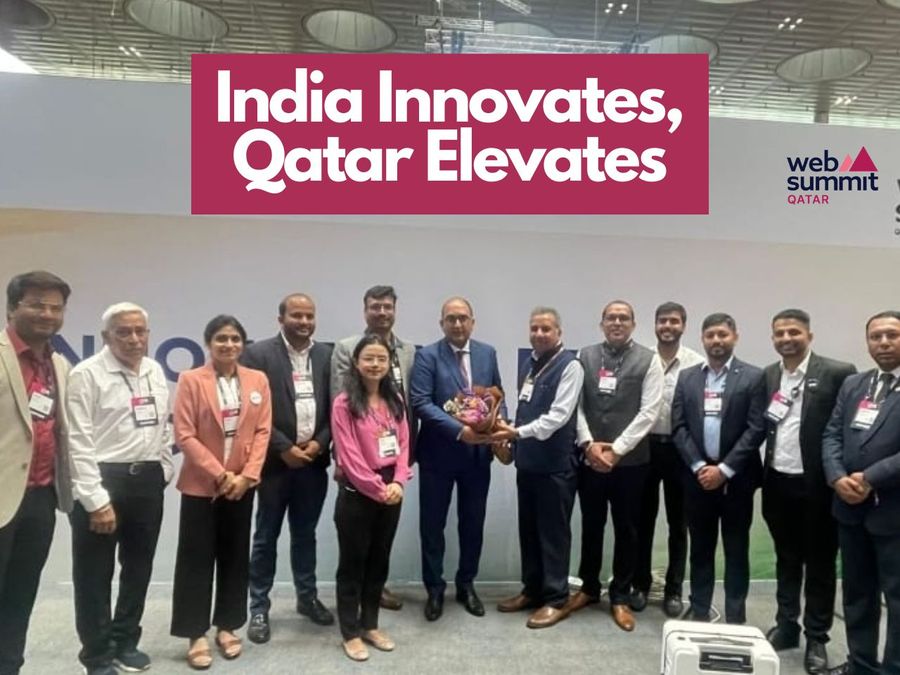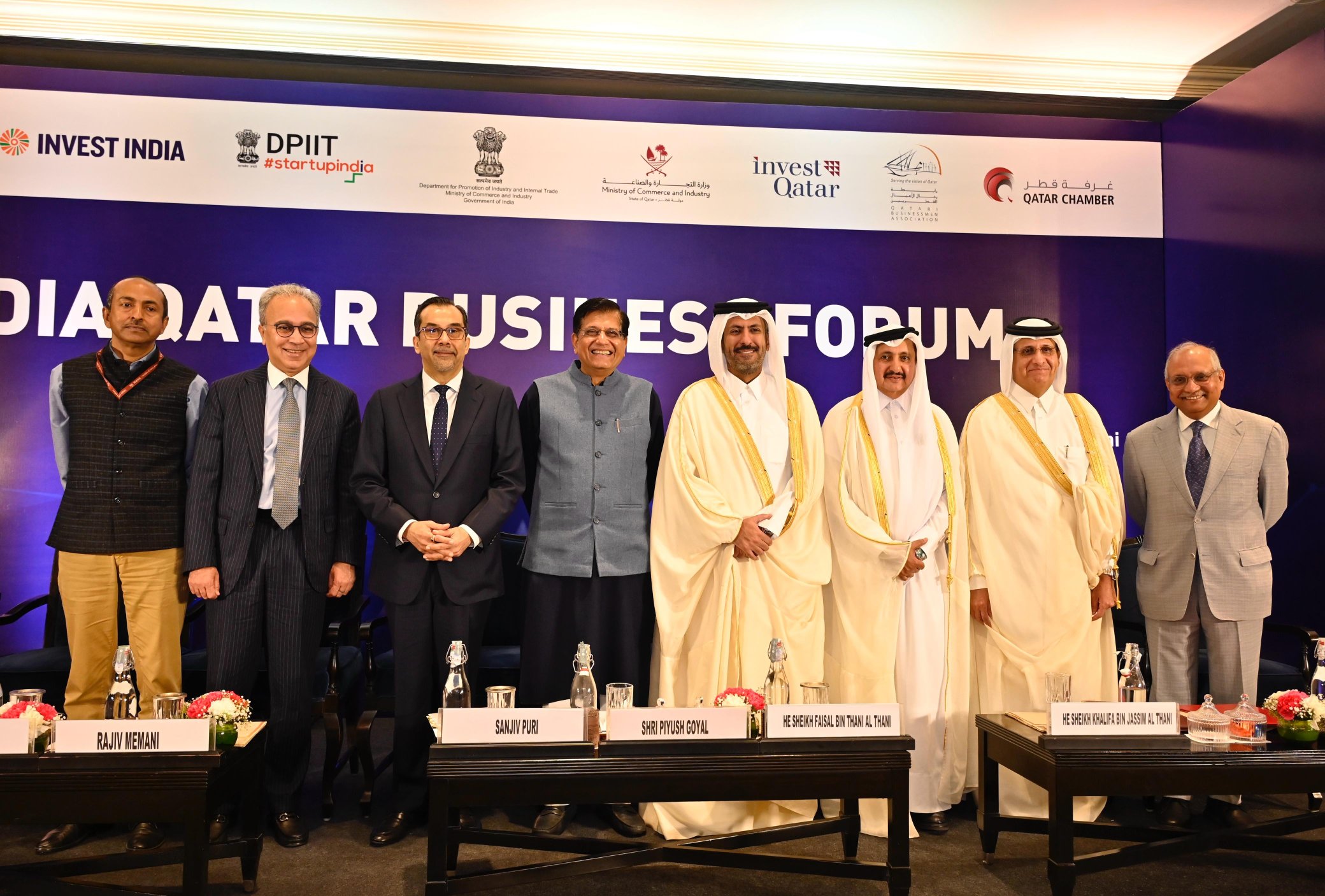Qatar issues new law to localize private sector jobs

RIYADH: Saudi Arabia’s fintech sector is set to take center stage from Sept. 3-5 at the inaugural 24 Fintech conference, at the Riyadh Front Exhibition & Conference Center.
Expected to draw over 26,000 participants, 300 exhibitors, and 200 investors, the event aims to become one of the world’s premier fintech conferences, spotlighting Saudi Arabia’s rapid growth in the industry.
The summit, co-organized by Tahaluf—a joint venture between Informa PLC, the Saudi Federation for Cybersecurity, Programming and Drones, and the Events Investment Fund—along with key Saudi financial regulators, seeks to position the Kingdom as a global fintech leader in alignment with Saudi Vision 2030.
In an interview with Arab News, Tahaluf Senior Vice President Annabelle Mander emphasized that 24 Fintech is designed to create a platform where fintech discussions lead to tangible results.
“Our primary objectives include establishing the Kingdom as a global fintech hub, leveraging its position as a leading international center for financial technology innovation, and attracting worldwide attention and investment,” Mander said.
The event will feature 175 hours of expert-led content, covering crucial topics such as governance, risk and policy, and cybersecurity, as well as global interoperability, and innovation in payments.
The summit’s credibility is bolstered by strong government support, hosted by the Kingdom’s Financial Sector Development Program, Saudi Central Bank, Capital Market Authority, and the Insurance Authority.
Additionally, it is co-organized by Fintech Saudi, Saudi Arabia’s leading accelerator in the sector. Its CEO, Nezar Al-Haidar, described the event as a “pivotal moment”, adding: “24 Fintech is an important milestone in advancing the Saudi fintech industry and aligns with our vision to position the Kingdom as a leading global fintech hub.”
The three-day conference will bring together key industry stakeholders, including senior government officials and global finance leaders, to address pressing issues affecting the Kingdom’s financial industry transformation.
High-profile speakers will include Mohammed Al-Jadaan, chairman of the FSDP; Mohammed El-Kuwaiz, chairman of the Capital Market Authority; Abdulaziz Al-Boug, chairman of the Insurance Authority; and Yazeed Al-Nafjan, deputy governor of financial innovation at the Saudi Central Bank.
According to Mander, one of the event’s core missions is to foster a thriving fintech ecosystem within Saudi Arabia, driving growth, job creation, and economic diversification.
“By bringing together key industry stakeholders from across the globe, we hope to encourage the exchange of ideas, foster collaboration, and nurture the development of groundbreaking fintech solutions,” she said.
The event will also focus on expanding financial inclusion by broadening access to financial services, in line with the nation’s Vision 2030 goal of achieving financial accessibility for all citizens.
Dominating the VC space
A distinctive feature of 24 Fintech is its emphasis on investment opportunities, with programs such as Venturescape and pitch competitions designed to stimulate capital flow into promising startups.
The sector continues to lead in venture capital investments within the Kingdom, a trend expected to accelerate in the latter half of the year.
Philip Bahoshy, CEO of venture data platform MAGNiTT, said in an interview with Arab News that fintech has emerged as the most prominent industry across emerging markets like Africa, the Middle East, and Southeast Asia, in terms of transaction volumes and total capital deployed.
“Fintech solutions are proving critical in addressing the infrastructure pain points around financial services,” Bahoshy explained.
He highlighted that in regions like the Middle East, which are fragmented by various regulatory regimes and geographies, fintech companies have the potential to disrupt traditional money transfer and payment systems.
“We expect fintech solutions to remain popular, not only here in the region but globally, as companies tackle financial services challenges,” Bahoshy said.
He added that events like 24 Fintech play a crucial role in driving this growth by bringing together government entities, regulators, founders, investors, and corporates, all of whom share a vested interest in solving large-scale financial problems.
Saudi Arabia’s leadership in fintech, showcased through events such as 24 Fintech, is also shaping the broader venture capital landscape in the Middle East and North Africa region, particularly through fostering cross-border investments.
Bahoshy emphasized the importance of government-led initiatives like regulatory sandboxes, which allow fintech startups to test their models in a controlled environment using anonymized consumer data.
“These platforms are key to finding solutions to everyday consumer challenges and also allow for regulatory frameworks to be adapted to the fast-changing financial services sector,” he said.
According to Bahoshy, dialogue and collaboration between regulators, founders, and corporates are essential for companies to reach product-market fit, attract capital, and contribute to broader economic goals such as employment and GDP growth.
The event will feature multiple stages, including the Futures Forum Stage for academic and interactive discussions, the Fintech Fusion Stage for experiences shared by founders and investors, and the 24° Trends Stage focused on the latest trends and technologies reshaping finance.
An entrepreneurial focus
The conference will also showcase the Startup Zone, a dynamic space for networking, pitching sessions, competitions, and demo showcases. This will run parallel to the Investor Program, a venue for uncovering opportunities and connecting with visionary entrepreneurs.
Collaboration between startups, investors, and global financial institutions is a central theme of 24 Fintech.
Mander highlighted that the event aims to support the growth of the fintech industry not only in Riyadh but across the broader Europe, Middle East, and Africa region.
“By creating a dynamic platform for networking, knowledge sharing, and partnership building among industry stakeholders, the event will foster collaboration between startups, investors, and global financial institutions,” she said.
Through dedicated initiatives and opportunities for startups to connect with investors, the event will support the growth of new businesses within the fintech ecosystem.
Tahaluf is committed to ensuring that the ideas and innovations presented at 24 Fintech translate into real, tangible growth for the sector across the region.
Mander emphasized that the event’s packed schedule, spread across multiple stages, will address critical topics including governance, data privacy, cybersecurity, and consumer protection.
By tackling these areas, the conference will ensure that the rapid growth of fintech is supported by robust frameworks for security and regulation, essential for fostering trust in the evolving financial landscape.
Bahoshy noted that Saudi Arabia’s larger population compared to other Gulf Cooperation Council countries makes the market particularly attractive for scalable fintech solutions.
“The more flexible and dynamic the regulatory environment, and the more it listens to founders and the market, the more companies will build their businesses here,” Bahoshy said.
He believes Saudi Arabia’s regulatory frameworks could become a “gold standard” for other countries in the region, encouraging cross-border expansion of fintech solutions and attracting further capital.
However, Bahoshy also acknowledged that while fintech offers significant opportunities, there are notable challenges for investors, chief among them ensuring strong product-market fit, scalability, and navigating the regulatory environment.
“The removal of regulatory challenges that impede growth will be key to fostering the success of fintech startups,” Bahoshy stated.
He also highlighted the importance of talent in supporting scalable business models, noting that with the right solutions, investors could see significant returns, particularly through potential initial public offerings or exits.
He compared this to successful companies like Careem and Souq, which achieved significant exits by localizing their solutions, working closely with regulators, and expanding into multiple geographies.
“The opportunity for investors lies in markets ripe for disruption with limited local competition. Scaling across borders while maintaining compliance with various regulatory frameworks will make these fintech startups highly appealing,” Bahoshy said.
The conference will also focus on emerging fintech trends and technologies, such as artificial intelligence and open banking, with opportunities to explore their impact on the industry.
“The event will spotlight investment opportunities within the fintech sector, connecting startups with potential investors to fuel growth,” Mander said.
In addition to panel discussions and industry announcements, 24 Fintech will feature capacity-building initiatives such as mentorship programs and workshops, empowering fintech professionals and entrepreneurs with the tools they need to succeed in the evolving financial landscape.
Related
Qatar Business Leaders Optimistic About Long-Term Growth – HRO Today
Research from KPMG finds CEOs are prioritising resilience, technological innovation, and adaptability in 2025. By Maggie Mancini As organisations respond to glo
Indian Startups Showcase Innovation and Global Expansion at Web Summit…
Indian startups are making waves globally, and their latest venture at Web Summit Qatar 20
Qatar’s tax authority launches 100 percent financial penalty exemption initiative…
To qualify, companies must register on the Dhareeba Tax Portal and ensure that all taxpayer data is updatedQatar’s General Tax Authority recently announced th
India-Qatar Joint Business Forum held to Strengthen Bilateral Economic Ties…
NEW DELHI : On the sidelines of the visit of H.H. Sheikh Tamim bin Hamad bin Khalifa Al Thani, Amir of Qatar to In












